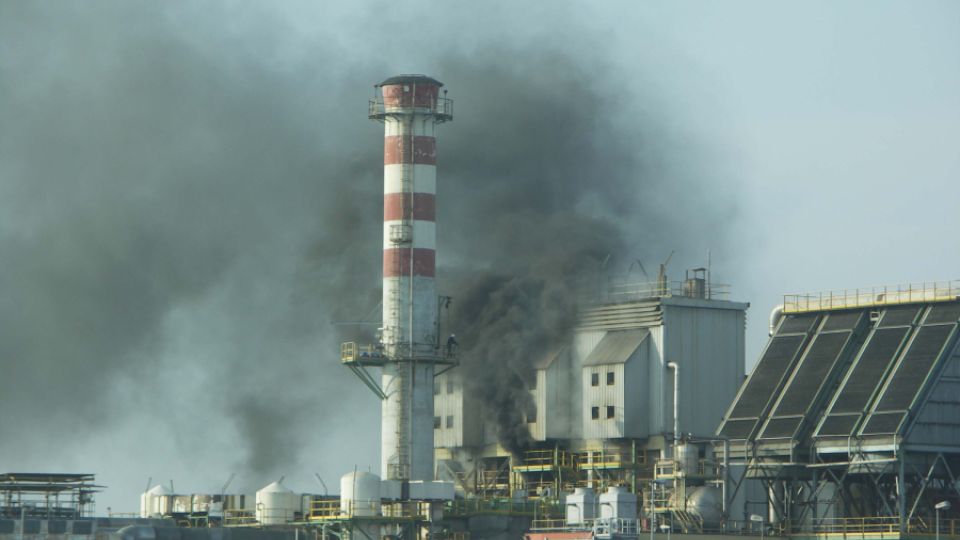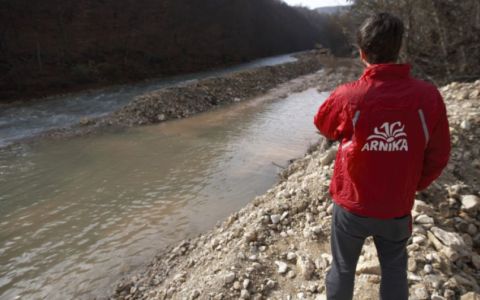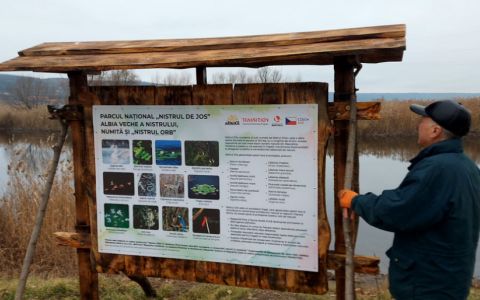An open letter from the GAIA platform, co-signed by Arnika, to UN Under-Secretary-General Anacláudia Rossbach: Many environmental organisations oppose the unscientific promotion of waste incineration, warning that the so-called waste-to-energy systems damage the climate and spread toxic substances.
Dear Ms. Rossbach,
The Global Alliance for Incinerator Alternatives, which represents over 1,000 groups across 92 countries worldwide, is dismayed by UN-HABITAT’s promotion of waste-to-energy incineration (WTE) on its LinkedIn page on March 6, as well as your inclusion of WTE in your zero waste best practices webpage. This contradicts UN-HABITAT’s mission of disseminating proven strategies to promote urban development. Waste-to-energy incineration has been largely discredited worldwide for its capital-intensity, climate emissions, impact on human health and the environment, and threat to waste picker livelihoods.
WTE incinerators have been shown to be a serious toxic burden on communities surrounding them. Older incinerators lack basic pollution controls or regulatory oversight in many countries, and even the “state-of-the-art” newer WTE incinerators have been shown to release pollutants. A biomonitoring study conducted last year around WTE incinerators in Slovakia, The Netherlands, and Spanish Basque country found dioxin contamination exceeding EU limits, PFAS in the water, and heavy metals in the soil. As a result of this groundbreaking research, the French Parliament is currently considering a moratorium on incineration.
Want to know more? Download and read Arnika's comprehensive study Waste incineration and the environment
Increasing WTE incineration of waste would be a climate disaster. Every metric ton of plastic burned in a WTE incinerator results in almost one ton of CO2 emissions, even when factoring in energy production from the process. In fact, electricity produced by incinerators is more carbon-intensive than electricity generated through the conventional use of fossil fuels.
This is why in Europe, where decarbonization of the energy grid is an important policy commitment, countries like Denmark are closing down incinerators, and the European Union funds such as, The EU Cohesion Fund, Just Transition Fund, Recovery and Resilience Fund as well as European Investment Bank all excluded incineration from being eligible for financing.
There have been countless examples of cities’ recycling rates stagnating because recycling programs are competing with WTE for the same material. Sweden’s recycling rate has been flat-lining since 2006. In a 2021 analysis of the waste stream in five US cities with incinerator contracts, 76% of recyclable plastic was not recycled.
WTE is also the most expensive form of waste management–three times the costs of landfills and up to five times the cost of recycling and composting– and demands a certain volume of flammable waste to burn (plastic, paper, cardboard) in order to remain solvent. It also creates the least number of jobs of any waste management approach by far. Construction costs of these plants range from USD 600 to USD 1,000/ton of installed capacity for incinerators with high pollution control standards, and they create as few as 1.7 jobs/10,000 tonnes per year.
Waste pickers are the first impacted by WTE, as it creates a direct uneven competition for recyclable materials, which must be burned to meet high calorific values for energy production. This is even more acute in global south countries, which have a high percentage of organic waste.
The promotion of incineration locks communities into a cycle of pollution, resource waste, and health impacts. Therefore, embracing zero waste models can help communities thrive by transforming waste into valuable resources, not only creating more jobs (recycling and repair can generate over 200 times more jobs than landfills and incinerators), but also making communities stronger and more resilient.
More than 500 cities around the world are transitioning to zero waste through policies or practices.
In Europe, the world’s first Zero Waste Cities Certification is leading the way on best practices to reduce waste methane at the local level. For example, Salacea, in Romania, a small, rural municipality, installed a door-to-door separate collection model alongside a community education program. In just 3 months, separate collection rose from 1% to 61%, and reduced waste sent to landfill by 40%.
In the Asia Pacific region, GAIA launched a Zero Waste Cities Network with 37 cities committed to reducing 70% of their methane emissions from waste by 2030. Already municipalities have seen impressive results– the composting system in Tacloban, Philippines saved 27% on waste management costs after implementing zero waste policies. In Dar Es Salaam, Tanzania, the successful zero waste model in Bonyokwa ward has a 95% diversion rate from disposal.
In Ecuador, Mingas por el Mar, a foundation with over 300 volunteers, launched a public campaign in 2023 to replace disposable cups with reusable ones in beachside restaurants, saving 23,000 disposable cups in the first year and reaching 40 restaurants across three cities.
As a co-convener of UN Day of Zero Waste, it is vitally important that UN-HABITAT draw a line in the sand on what is zero waste, and what is not. We urge UN-HABITAT to remove waste-to-energy from its best practices section and cease further social media promotion, and instead align with innovative, just, and effective zero waste solutions that are rapidly generating positive impact around the world.
Signed,
adansonia.green
AGIR POUR LA SÉCURITÉ ET LA SOUVERAINETÉ ALIMENTAIRE ASSA
Aliança Resíduo Zero Brasil
Almang Market
AMAR Environment Defense Association
Aotearoa Plastic Pollution Alliance
Arnika – Toxics and Waste Programme
Asociacíón Ecologica Santo Tomás, A.C.
Associació Mediambiental Vall del Ges.Net
ASSOCIATION OF SCRAPS AND WASTEPICKERS OF LAGOS STATE) ASWOL) NIGERIA OF LAGOS STATE ( ASWOL)
Azul
BIOS Argentina
Break Free From Plastic (BFFP) – global
BYO – US Reduces
Center to Combat Corruption and Cronyism (C4 Center)
Centre for Environment Justice and Development
CESTA AT
Chester Residents Concerned for Quality Living
CHYSTO.DE
Clean Air Action Network of Glens Falls (NY)
Community Development Advocacy Foundation (CODAF)
Consumers’ Association of Penang
Defend Our Health
Društvo Ekologi brez meja
Durham Environment Watch (DEW)
EARTHDAY.ORG
Ecological News
ECOS, Environmental Coalition on Standards
Ecoteca
ECOTECA (Romania)
EcoWaste Coalition
Environment and Social Development Organization-ESDO
Environmental Defence Canada
Environmental Defenders Network (EDEN)
Europe and We, Bulgaria
European Environmental Bureau
FAS PANAMA
Feedback EU
FoCo Trash Mob
FreshWater Accountability Project
Friends of the Earth Cyprus
Fundación Aguaclara
Fundacion Apaztle
Fundación Basura
Fundación El Árbol, Chile
Fundación Rayavidia
Fundación Reparemos
Fundación Títeres En Red
Fundación Vida Sostenible
GAIA and BFFP Latin America and the Caribbean
Gallifrey Foundation
Global Alliance for Incinerator Alternatives
Green Liberty
Greenaction for Health and Environmental Justice
groundWork
Health and Environment Justice Support
Health Environment and Climate Action Foundation
Health Environment and Climate Action Nepal
Humusz Szövetség
Innolif Group
Instituto Pólis
Keith Roman & Associates
KongoGreen
Korea Zero Waste Movement Network
Miya Ywech
Mother Earth Foundation
Mwadhini Myanza
NGO Mariupol Zero Waste
Nipe Fagio
Observatoire du principe pollueur-payeur
Our Zero Waste Future
Pacific Environment Vietnam
Parisar Sanrakshan Sanwardhan Sanstha
Pemba Environment and Sanitation Organisation
Polish Zero Waste Association
Pro Green Shapers
Red de Jovenes de America Latina – Tearfund
RTCH Red de Titiriter@s de Chile (M.R.)
SAF-TESO
Sahabat Alam Malaysia (Friends of the Earth)
Society of Native Nations
Solidarité pour la Protection des Droits de l’Enfant( SOPRODE)
South Durban Community Environmental Alliance
Sustainable Environment Development Initiative
SWMRT
Taller Ecologista
TOXISPHERA Environmental Health Association
United Kingdom Without Incineration Network (UKWIN)
WALHI/Friends of the Earth Indonesia
WECF International (Women Engage for a Common Future)
Women for Green Economy Movement Uganda
Yaksa Pelestari Bumi Berkelanjutan – Indonesia
YPBB Indonesia
Za Zemiata
Zelena akcija / Friends of the Earth Croatia
Zero Waste 4 Zero Burning
Zero Waste Alliance Ukraine
Zero Waste Aotearoa (NZ)
Zero Waste Association of South Africa (“ZWASA”) CEO
Zero Waste Europe
Zero Waste Italy
Zero Waste Ithaca
Zero Waste Kharkiv
Zero Waste Malaysia
Zero Waste North West
Zero Waste Society
Zero Waste ZP NGO







